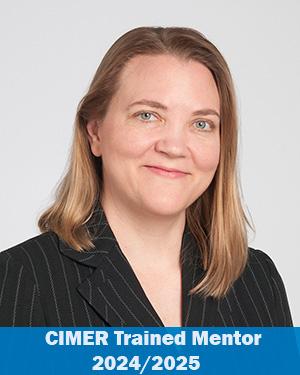Research News
12/30/2019
A New Approach to Treating Infectious Disease
Jeannette Messer, DVM, PhD, has received a Catalyst Research Award from the Dr. Ralph and Marian Falk Medical Research Trust to develop small molecules that treat and prevent a wide range of microbial-related infectious diseases

Jeannette Messer, DVM, PhD, Department of Inflammation & Immunity, has received a Catalyst Research Award from the Dr. Ralph and Marian Falk Medical Research Trust to develop small molecules that can help treat or prevent a wide range of microbial-related infectious diseases, which are responsible for millions of deaths worldwide each year.
Despite different origins, infectious diseases caused by bacteria, viruses, fungi and single-cell parasites all follow the same infection pattern, which starts with microbe-host adhesion. Like a lock and key fitting together, proteins found on the surface of microbes selectively bind to carbohydrates on the surface of host cells. Dr. Messer believes that targeting the universal microbe-host adhesion process may be the key to preventing microbial-related infectious diseases.
With this award, Dr. Messer will work together with researchers from the Cleveland Clinic Center for Therapeutics Discovery to design small molecules that outcompete host cells for binding and prevent the earliest stages of infection.
Targeting a molecular feature that is common across a multitude of bacteria, viruses, fungi and single-cell parasites—rather than trying to prevent infection on a microbe by microbe basis—represents a paradigm shift in how researchers and clinicians approach infectious disease.
“We are really excited by this new line of investigation and are hopeful that our efforts will yield promising molecular leads for a completely new class of antimicrobial drugs—one the focuses more on microbial behavior and less on specific microorganisms,” said Dr. Messer.
“I am grateful to the Dr. Ralph and Marian Falk Medical Research Trust for their support of this project, which was made possible by the expertise and collaboration of my colleagues in the Cleveland Clinic Center for Microbiome and Human Health and the Cleveland Clinic Center for Therapeutics Discovery.”
The Catalyst Research Award provides $300,000 in funding and eligibility for the Falk Transformational Award, which would provide an additional $1 million over two years. The Transformational Awards Program is only open to successful Catalyst awardees and is designed to help bridge the technology transfer gap and propel small molecules further along the drug discovery pipeline towards commercial development and clinical use.
Featured Experts
News Category
Related News
Research areas
Want To Support Ground-Breaking Research at Cleveland Clinic?
Discover how you can help Cleveland Clinic save lives and continue to lead the transformation of healthcare.
Give to Cleveland Clinic